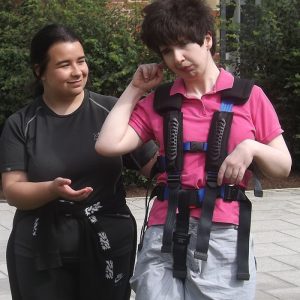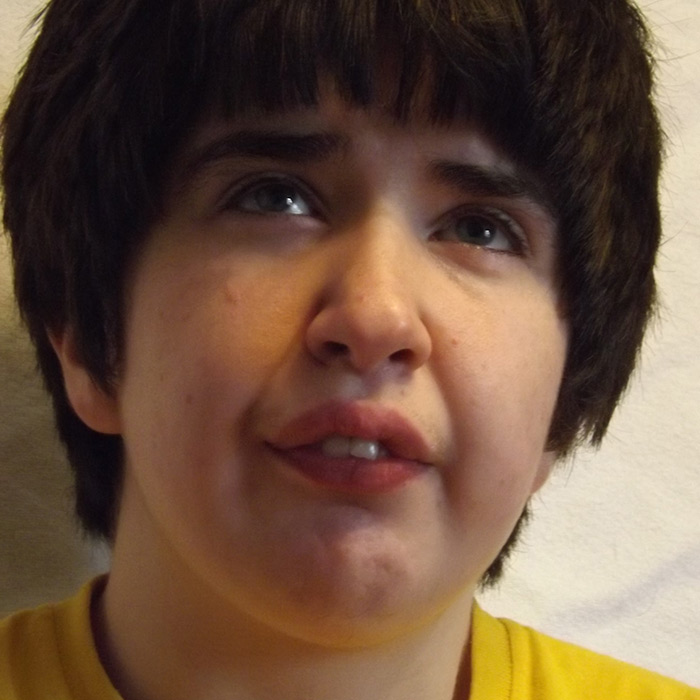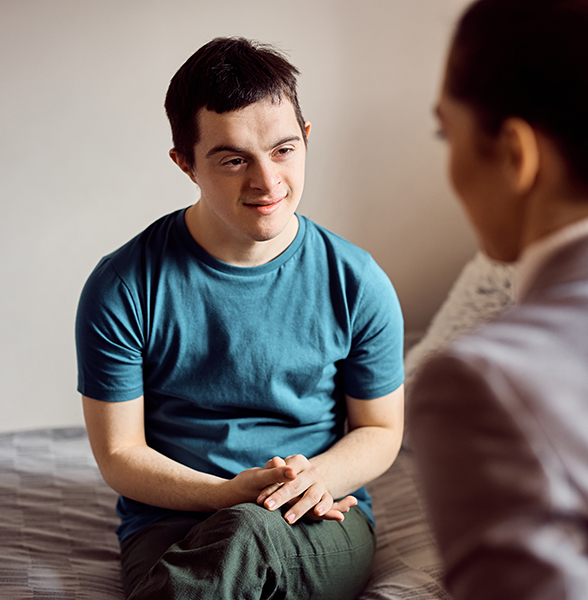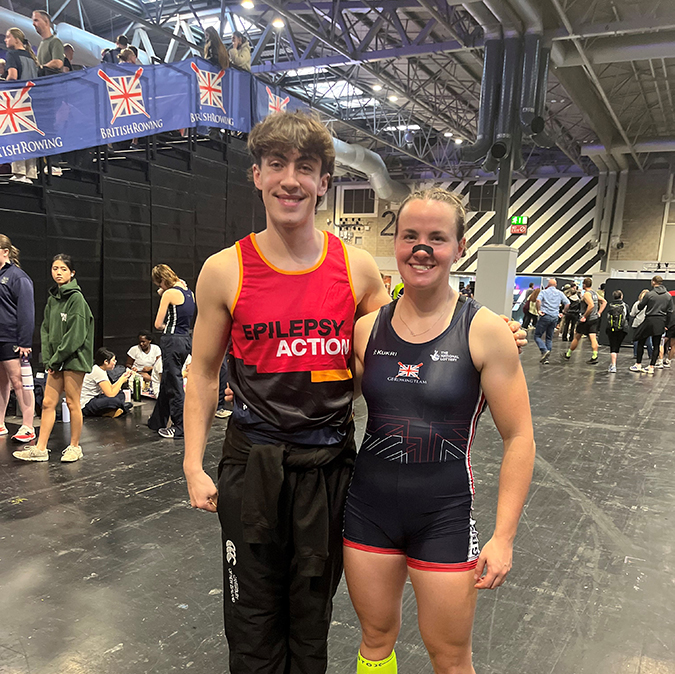 A father in Northern Ireland is raising awareness of a harness he developed to support his daughter who had drop falls (atonic seizures) as part of her epilepsy.
A father in Northern Ireland is raising awareness of a harness he developed to support his daughter who had drop falls (atonic seizures) as part of her epilepsy.
Dermod Ryder developed the harness from a car belt, and with support from Rik Fradgley of White Knight Wellbeing – an organisation that makes specialist equipment for disabled people – they created something his daughter Katie could wear all day without injury.
Katie was born with a chromosomal abnormality, which led to her having autism and epilepsy. She would regularly have drop seizures that caused her injuries. Katie died in January 2021 following an epileptic seizure in her sleep.
Before Dermod and Rik developed the harness, Katie wore a helmet which the family said caused concussion, rode forward, gave her black eyes and grazed her scalp.
Dermod said: “It started with a physio who gave us a handling belt, but it didn’t work well enough – so then I had a brain wave.
“The harness we came up with was absolutely perfect and it worked. She never had contact with the ground once she started using it.”
He added: “We used to put it on her in the morning and she would wear it most of the day. If we were going out in the winter we took one of her coats and we cut a hole in the back, you stuck your hand in and held the harness at the back.”
A change in Katie
But it wasn’t just the physical safety of the harness that improved Katie’s life. It also improved her confidence and wellbeing.
Dermod said: “When Katie wore the helmet her head was down and wasn’t enthusiastic, but a neighbour of ours said to me: ‘It’s the difference in her I notice. You used to walk her, and she would be hesitant, and her head would be down and not too keen. But now, head up, shoulders back and leading the way.’
“She was much happier with it. She would stand in the morning when I put it on her, no problems. Our Katie was quite determined in her own way. If she didn’t like something she’d let you know. But she stood there every morning while I put it on and had a great time in it.”
Dermod said the harness had been used by carers of varying strengths.
“Savannah, Katie’s carer, was 5ft nothing. Some think: ‘Oh, it’s okay for Dermod he’s 6ft 4 and built like a brick dunny, we couldn’t possibly handle it.’ But Savannah could and she was 5ft nothing,” he said.

Sarah McCann, who is an Epilepsy Action Northern Ireland council member, was Katie’s Epilepsy Specialist Nurse, and worked with her for about 10 years. She said the harness was an improvement for Katie and the family.
“It definitely provided Katie with the support and stability she needed. And it actually changed her, there was more independence for her. She was able to get up and walk about safely,” she said.
Sarah said occupational health (OT) had tried a number of devices to support Katie, but nothing worked as well as the harness.
“We had to draw up protocols to do with the harness so that we could put it into the adult centre. In order for staff to be able to use it, we needed these protocols and procedures on how to use the harness to keep her safe,” she said.
How the harness is helping others
Even after Katie died the trust continued to use the harness.
Sarah said: “In the nursing home that Katie was in [for respite] they have been using it for the last 18 months.”
Now, Sarah and Dermod would like to see other families benefit from safety aids.
Dermod said: “It was Sarah who opened my mind that it could have applications for other conditions, because all I did was make it for Katie. Katie’s legacy is to put it out there as best we can.”
Sarah added: “A team is going to be looking at all the research behind this harness.
“We would love for all the families that felt they could benefit from this to know that something was there for them.”
More articles



Find your safety aid
There are various safety aids on the market for disabled people, click the link below for more information.




